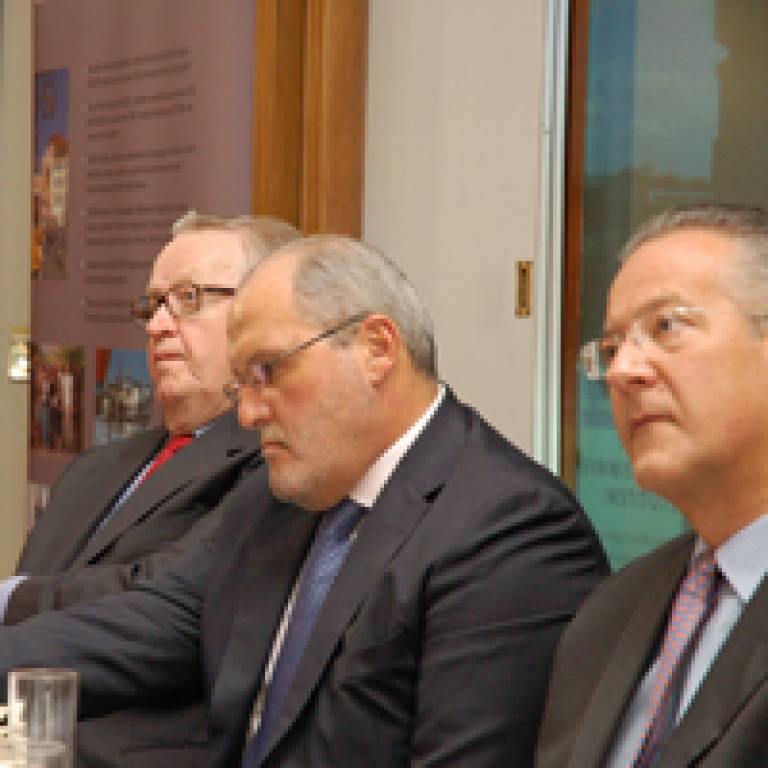International panel debates the future of Kosovo
1 October 2008
Links:
 ssees.ac.uk/" target="_self">UCL School of Slavonic and East European Studies
ssees.ac.uk/" target="_self">UCL School of Slavonic and East European Studies
Former President of Finland and UN Special Envoy Martti Ahtisaari (pictured, left) headed a distinguished panel of speakers in a round table debate on Kosovo organised by UCL SSEES last month.
An audience of more than 30 ambassadors and representatives from the SSEES region, as well as countries of the EU and the UN Security Council, plus 60 academics, journalists, business people and representatives from the Foreign and Commonwealth Office (FCO), Ministry of Defence and NGOs gathered to hear the debate, 'Kosovan Questions: National, Regional, International'.
Just the previous day, Ahtisaari was awarded an Honorary Degree from UCL, the first of this kind exercised independently of the University of London.
Joining him on the panel were Kosovan journalist and politician, Veton Surroi (middle); Ivan Vejvoda, executive director of the Balkan Trust for Democracy and former advisor on foreign policy to Prime Ministers Djindjic and Zivkovic (right); anthropologist Stephanie Schwandner-Sievers, who works on popular memory and politics in Kosovo and is an Honorary Research Associate at UCL; Balkans Director at the FCO, David Landsman, and former British ambassador to Belgrade, David Gowan, who chaired the meeting after opening remarks from SSEES Director, Robin Aizlewood.
The event sounded significant notes of optimism about Kosovars and their self-determination and the constructive nature of Serbia's support for Serbs to remain in Kosovo, and there was a discussion of the possibilities for mutual recognition between Serbia and Kosovo in the future.
The audience gained insights into the negotiating process, its guiding principles and the functioning of the Contact Group, as well as into the Kosovan, Serbian and UK/Western perspectives and, not least, the local, individual and societal perspectives of the communities in the region themselves.
On the table were questions and discussion covering:
- issues of international law, precedent and comparison with regions such as the North Caucasus; de facto partition of the north of Kosovo
- the mutual economic interest in effective customs control to stem the current loss of revenue due to smuggling
- the problems of a dual form of governance - the Kosovan Government and EULEX
- the need for the internationals in Kosovo to listen better in order to understand local concerns
- minority rights, including those of Roma
- and many other issues, political, economic, historical and cultural.
Aizlewood said the debate had highlighted the multiplicity of Europe, large nations and small nations, to study urgent contemporary problems and questions through dialogue with policy makers. To do so with an equal mind to, and respect for, historical and cultural contexts in all their diversity, is, he said, at the heart of the UCL SSEES mission.
 Close
Close

